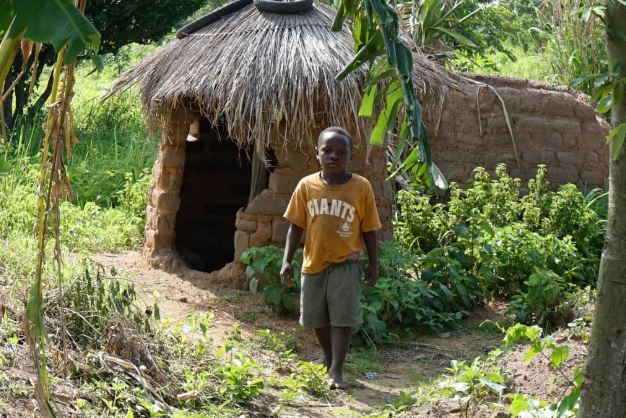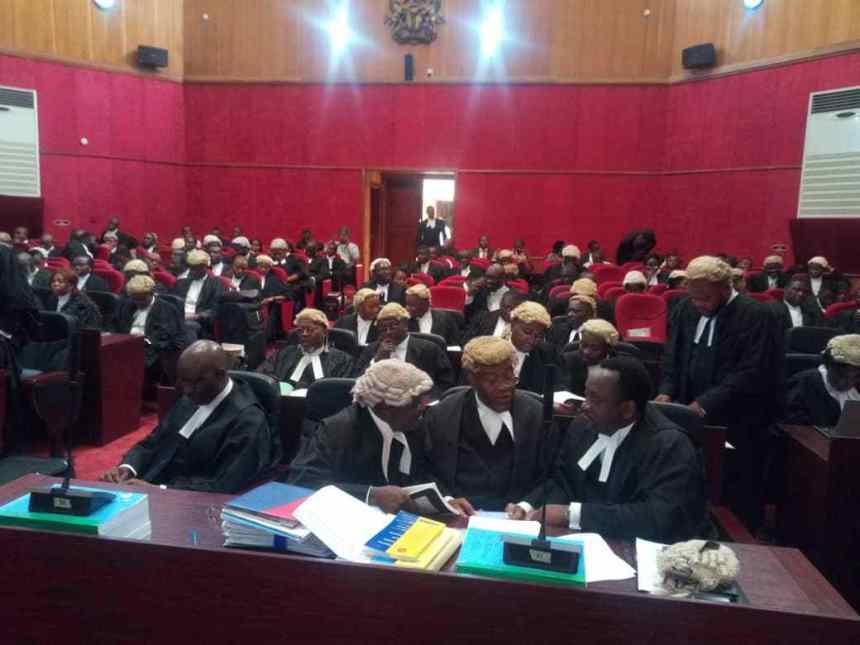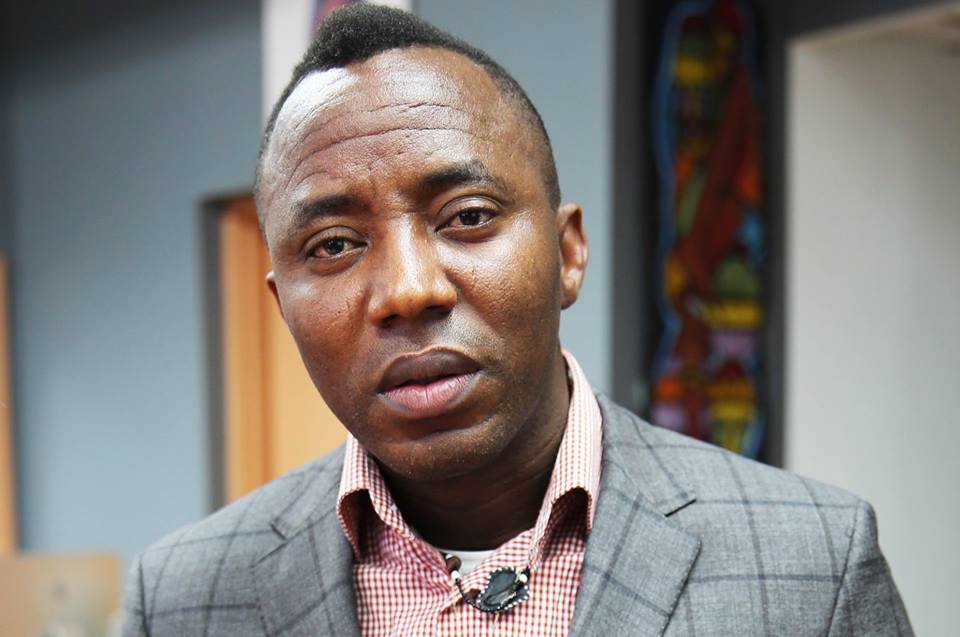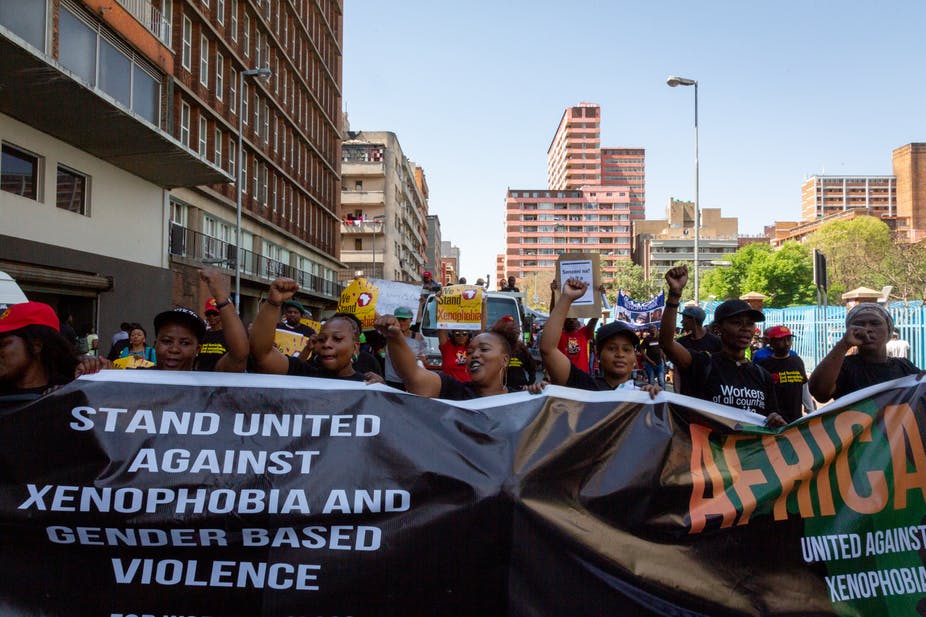BY FREDA UKPOJU
Like many Nigerians, I have often wondered if it is possible to fight corruption in Nigeria; or make any meaningful impact on anticorruption; whether we are not just chasing the wind with anticorruption campaigns or crusades that have taken over the air and land waves and spaces.
The optimists insist that things are changing for better, but the daily media reports, discussions and analysis, as well as, poor handling of some critical corruption cases, by government, suggest otherwise, casting a gloomy cloud over the high expectations of the ordinary Nigerians, who remain the victims of corruption. How long will this group of ‘unfortunate’ Nigerians remain on the sidelines? What will it take for them to become a player in the field of anticorruption? How ready are they to seize the anchor and stir the ship to sail towards the desired destination? These questions lingered in my mind as I travelled with my team from Say No Campaign to some states in the North, south, east and west of Nigeria, on anticorruption campaign, which was supported by the MacArthur Foundation.
Engaging with the formal and informal groups of the religious, traditional institutions and community groups in those regions revealed a certain sad reality that if not checked will severely undermine the success of the anticorruption crusade to the detriment of the average Nigerian. The general, but wrong perception that everyone is corrupt in Nigeria has forced communities to accept almost every acts of corruption and excuse the perpetrators, especially when individuals do not feel directly affected by the acts of corruption.
Advertisement
It was interesting to observe religious and traditional leaders in the states of Kano, Enugu, Lagos and Akwa Ibom discuss their perspectives on anticorruption. While the idea of exemplifying virtues of honesty and moral uprightness amongst followers, trumps their discussion, certain underlying key issues captured my interest, which is, the fear of speaking truth to power and to protest infringement of fundamental human rights of their followers. Religious leaders are expected to be religious activists, hence speaking the truth and saying it in the face of injustice remains a fundamental service to their followers and society.
Similarly, the traditional leaders have a critical responsibility to ensure the welfare of their people and community; hence, keying into the anticorruption fight should be automatic as it serves the interest of the people. But the reversed is the case for many communities as their leaders were aloof to their role in championing the anticorruption fight in their communities. Some of the reasons expressed were laden with selfishness and decorated with ignorance. There were excuses and fear of falling out of favour with government officials; of not being recognised and so have no influence; not being carried along; being poorly financed with a meagre salary by government; and the litany of lamentation kept flowing.
Community members are not less vulnerable to the apathy against anticorruption. In fact, most have conveniently excused themselves out of the fight and outsourced the anticorruption fight to the government and its agencies and officials, becoming only spectators in the game. Hence, there is largely an outpouring of rage over the discussion of anticorruption with these community members.
Advertisement
These are real challenges to attaining citizen driven anticorruption; however, it is important to recognise the changing perspectives and resultant successes recorded in some communities to fire up the glimmer of hope these communities present for the fight against corruption. In its effort to have a citizen movement against corruption, the Say No Campaign team embarked on a unique campaign of a bottom-top approach to anticorruption by mobilizing citizens in active networks to respond and engage anticorruption in their communities. The rationale is that, just as not all problems are central or federal, same is true for corruption. There are local corruption happening in the face of community members, but these are ignored and attentions are focused on grand corruption at the federal level, which members have no control over addressing.
Hence, these networks of anticorruption formed in the FCT, and recently Enugu, Akwa Ibom, Lagos and Kano, are to concentrate on corruption in their immediate environment and use the apparatus of government to tackle them. The least engagement by these networks would be budget monitoring for full implementation in their communities, and an active campaigning against rewarding individuals with questionable sources of wealth, with titles and glorified positions in their society, as well as, celebrating ostentatious lifestyle and promoting materialism.
The HOPE this message brought to the faces of these group of people engaged was overwhelming and what is more satisfying is the shared success stories coming from some communities that took the Say No campaign message as gospel, acting in accordance. An inspiring story is the Abaji anticorruption network of the FCT, who organised their community members around specific areas of interest, like the abandoned road construction project of the Pandagi Rimba Ebagi Axis, in Abaji area council, which despite its yearly reoccurrence in the area council budget, has remained abandoned since 2014. Through the intervention of this anticorruption network construction has commenced, and active monitoring by the same network is ongoing. Other cases of exploitation and illegal electricity billing are been protested and addressed with the Abuja Electricity Distribution Company, in Abaji, by the same network.
What is more important here is the way this community has found its voice and the confidence it exudes in seeking accountability from these public offices. It is applaud-able that this network in Abaji, which is made up of community members and the district head, would take such fierce ownership without recourse to personal financial gains. What better way can Nigerians take charge of their destiny and salvage its future than addressing corrupt practices right from their immediate environment?
Advertisement
The responsibility of government to fight corruption cannot be denied, in fact, it is unconstitutional for any government to not fight corruption, however, the place of citizens in ensuring the success of the fight against corruption is just as important. Hence, just like the resident of the Abaji community, saying something when you see something is no longer sufficient, we must also do something. The civic space of anticorruption is transmuting from an atmosphere of helplessness to hypothesis testing. The policies are there to support citizens’ engagement, the institutions are there to implement the policies, individuals are outraged over the prevalence of corruption, but are they enough communities willing to take advantage of these opportunities to fix the social ills in their environment?
As we engage with formal and informal groups on anticorruption, we hope to sustain the momentum and drive home the narrative that whatever change we desire for our society and country at large, we must instigate, demand and ensure it, this we can achieve, not as individuals, but as a group united under a common purpose of ensuring a government that works in the interest of the people.
Ukpoju is the programme assistant with the Say No Campaign, a MacArthur Foundation sponsored anti-corruption project that promotes transparency, accountability and good governance in Nigeria.
Advertisement
Views expressed by contributors are strictly personal and not of TheCable.
Add a comment






